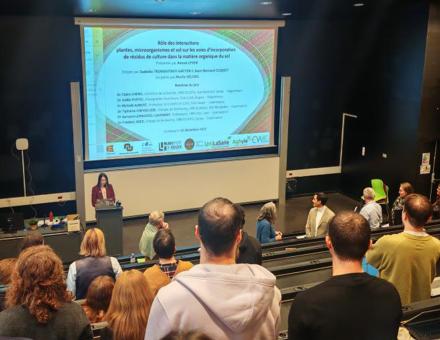Marion Guibourdenche, PhD student in the PériTox Laboratory UMR_l 01 of the University of Picardie Jules Verne and in co-supervision with the PETALES team - EA 7519 - Processing & Agro-Resources research unit of UniLaSalle, validated her PhD thesis following her thesis defense on Wednesday, March 31, 2021, which took place in Amiens.
Her work was on the "Effects of chronic maternal exposure to a pesticide and an obesogenic diet on digestive physiological functions: in vivo and in vitro approaches".
The whole UniLaSalle team congratulates Marion for the obtention of her thesis!
Abstract:
Maternal exposure to dietary pesticide residues and/or an unbalanced diet would induce risks for the offspring in adulthood to develop obesity and metabolic disorders. An associated disturbance of liver function and/or intestinal homeostasis would lead to serious health problems.
We evaluated the consequences of exposure of female rats from 4 months before conception to the end of lactation to an organophosphate pesticide, chlorpyrifos (CPF) and an obesogenic diet (HFD) on male offspring. We observed in adulthood (60 days) disturbances in the establishment of the intestinal barrier and hepatic metabolic functions. In parallel, we developed a co-culture model of human intestinal epithelial cells (Caco-2/TC7 & HT29-MTX), in order to mimic the effects of FPC on the human intestinal mucosal barrier.
Peri-gestational exposure to CPF induces alterations in the intestinal epithelial barrier and decreased hepatic de novo glucogenesis and lipogenesis in adult offspring. HFD causes the same effects without aggravating them. CPF increases tight junction protein gene expression but does not induce an inflammatory response or increase intestinal permeability in vitro.
Thus, in utero exposure to the pesticide or to an unbalanced diet alters the metabolism of neonates, which could, in adulthood, develop metabolic complications and/or impact other physiological functions leading to non-communicable chronic diseases.







